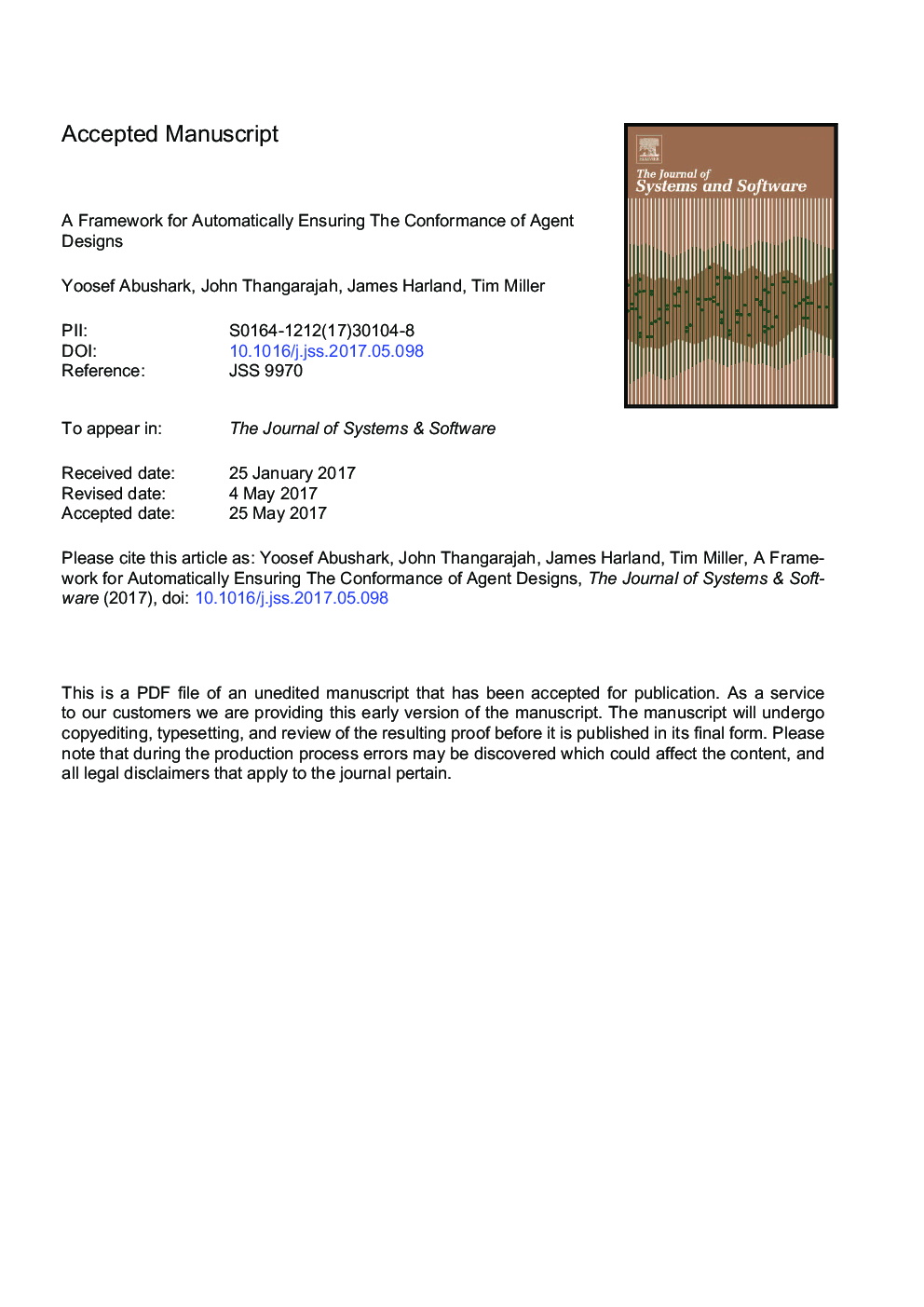| Article ID | Journal | Published Year | Pages | File Type |
|---|---|---|---|---|
| 4956415 | Journal of Systems and Software | 2017 | 41 Pages |
Abstract
Multi-agent systems are increasingly being used in complex applications due to features such as autonomy, pro-activity, flexibility, robustness and social ability. These very features also make verifying multi-agent systems a challenging task. In this article, we propose a mechanism, including automated tool support, for early phase defect detection by comparing the plan structures of a Belief-Desire-Intention agent design against the requirements models and interaction protocols. The basic intuition of our approach is to extract sets of possible behaviour runs from the agents' behaviour models and to verify whether these runs conform to the specifications of the system-to-be or not. This approach is applicable at design time, not requiring source code, thus enabling detection and removal of some defects at an early phase of the software development lifecycle. We followed an experimental approach for evaluating the proposed verification framework. Our evaluation shows that even simple system's specifications developed by relatively experienced developers are prone to defects, and our approach is successful in uncovering most of these defects. In addition, we conducted a scalability analysis on the approach, and the outcomes show that our approach can scale when designs grow in size.
Related Topics
Physical Sciences and Engineering
Computer Science
Computer Networks and Communications
Authors
Yoosef Abushark, John Thangarajah, James Harland, Tim Miller,
